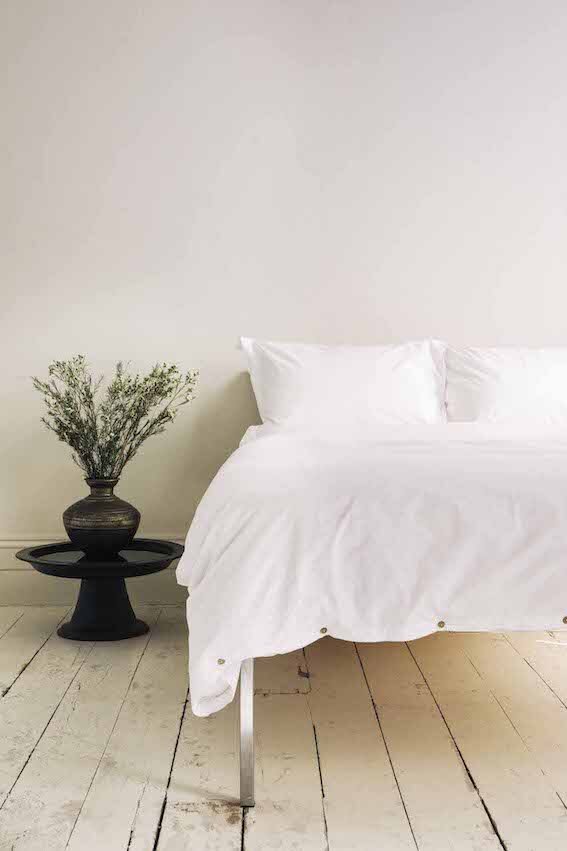ECOSOPHY
Website:
Instagram:
www.instagram.com/ecosophyhome
About Ecosophy:
Meaning ‘household’ and ‘wisdom’, Ecosophy are a UK-based contemporary home textiles brand with a focus on environmentally-friendly and organic fabrics. With the exception of their bedding, fabrics are woven by hand by in South Asia. Ecosophy work closely with fair trade and artisanal groups, ensuring fair working conditions and full traceability of each product’s journey from seed to stitch. A lot of thought has gone into designing even the small elements of the products, with wooded buttons rather than plastic on the bedding, and packaging being 100% biodegradable or recyclable. We’ve had the pleasure of trying the organic cotton percale bed set and it’s a dream.
Fair Pay and Good Working Conditions:
Ecosophy suppliers are Fair Trade certified factories or small cooperatives set up by NGOs. They visit their suppliers regularly and see the working conditions first-hand. Ecosophy build relationships with their suppliers as partners rather than auditors, which leads to honest communication and insight into actual conditions.
Sustainable / Organic Materials:
Ecosophy use the most sustainable fabrics available. Their current collections are made from organic cotton, organic linen, wild silk and matka (recycled) silk. Some of their products require the use of polyester thread due to its strength (this usually comprises around 1% of the fabric), but they are moving toward recycled polyester and aim to eventually use this exclusively.
Sustainable Practices:
Ecosophy bedding and towels have been dyed and processed using low-impact chemicals and water filtration techniques that meet the standards set by the Global Organic Textile Standard (GOTS). Their other products are either undyed or dyed with pigments derived from nature. The water used for natural dyeing is non-toxic and is recycled for agricultural irrigation.
Animal Welfare:
Ecosophy cotton and linen products are made of organic fibres. Organic farming avoids the use of pesticides and instead uses pest-control techniques that are much more benign to wildlife.
Their silk products are primarily made of wild silk, which is collected from the cocoons of silk moths that live in forested areas. Wild silk production is primarily carried out by tribal people in India and it gives them a financial incentive to preserve their local forests, leading to increased habitat for wildlife. The cocoons are either collected after the moth has flown away or before, in which case the silk worm is used as food for the sericulturalists.
Packaging:
Ecosophy transport their products in cardboard boxes that are recyclable and made of recycled content. Their products are either wrapped in recyclable tissue paper, recyclable cotton tape or recyclable polybags. A minimal approach to packaging is taken.
Social Responsibility:
Ecosophy are honest in their communications and provide their customers with as much information as possible on the products. They explain in detail the sustainability credentials of their products to give customers an insight into the complexities of sustainable production.
Their pricing structure is a realistic reflection of the costs involved in producing their products and the need to pay their suppliers fairly.
Charity / Community Contributions:
Ecosophy believe that trade is a better way to support communities than charity. Therefore, any profits are channeled into building their trading relationships and taking on new ones.


